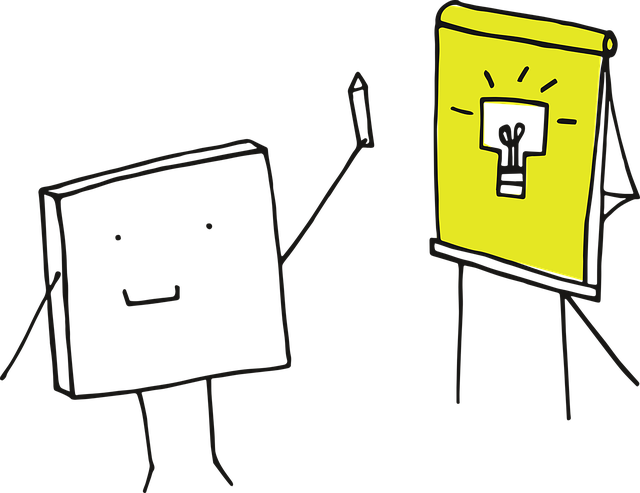Karachi's educational institutions are at the forefront of Pakistan's digital transformation, leveraging technology to revolutionize teaching methods and student experiences. Interactive whiteboards, online platforms, and virtual reality enhance learning outcomes, fostering a shift towards student-centric education. This integration prepares students for global careers by equipping them with skills relevant in today's digital era, making Karachi's classrooms dynamic hubs of discovery and innovation.
Technology is revolutionizing education in Karachi, transforming the once bustling educational landscape into a dynamic digital environment. This article explores the profound impact of digital tools on teaching practices in the city. From personalized learning experiences that enhance student engagement to collaborative platforms that connect educators, the innovations are vast. We delve into how these technological advancements present both challenges and opportunities for the future of education in Karachi, highlighting the need to navigate and embrace this digital shift effectively.
- The Digital Shift: How Karachi's Educational Landscape is Transforming
- Innovative Tools: Unlocking New Possibilities in Classrooms Across Karachi
- Personalized Learning: Technology's Impact on Student Engagement and Outcomes
- Collaborative Platforms: Fostering Connectivty and Knowledge Sharing Among Educators
- Challenges and Opportunities: Navigating the Future of Education in Karachi with Tech Integration
The Digital Shift: How Karachi's Educational Landscape is Transforming

Karachi, as Pakistan’s economic hub, is experiencing a significant digital shift in its educational landscape. The city’s schools and universities are increasingly adopting technology to enhance teaching methods and improve student learning outcomes. This transformation is driven by the growing accessibility of digital tools and resources, along with an increasing recognition of their potential to personalize education and make it more engaging.
The integration of technology in Karachi’s classrooms has led to innovative practices such as interactive whiteboards, online learning platforms, and virtual reality simulations. These tools are not only making lessons more dynamic but also facilitating a shift from traditional teacher-centric instruction towards student-centered learning. The digital revolution is fostering a new era of educational opportunities, equipping students with the skills necessary for a rapidly changing global workforce.
Innovative Tools: Unlocking New Possibilities in Classrooms Across Karachi

In the vibrant city of Karachi, educational institutions are embracing technology’s transformative power, leading to innovative teaching practices that unlock new possibilities for students. From interactive whiteboards to digital learning platforms and educational apps, these tools are revolutionizing how knowledge is imparted. Teachers in Karachi are leveraging these technologies to create dynamic classrooms where lessons come alive with multimedia presentations, virtual field trips, and engaging simulations.
Karachi’s diverse academic landscape, ranging from traditional schools to modern international curriculum centers, is witnessing a digital evolution. Educators are integrating technology into various subjects, fostering interactive learning environments that cater to different student needs. This shift not only enhances engagement but also prepares students for a future where digital literacy is paramount. As Karachi continues to embrace technological advancements, the city’s classrooms are becoming dynamic hubs of discovery and innovation.
Personalized Learning: Technology's Impact on Student Engagement and Outcomes

In the dynamic city of Karachi, technology has emerged as a powerful catalyst for transforming traditional teaching practices into personalized learning experiences. Digital tools and platforms now enable educators to cater to individual student needs, moving away from one-size-fits-all approaches. This shift is particularly beneficial in diverse classrooms where students bring varying skill levels, interests, and learning styles to the table.
By leveraging technology, teachers can create dynamic, interactive lessons that adapt to each learner’s pace. Adaptive software, for instance, can identify knowledge gaps and provide customized exercises, ensuring students receive targeted support. This personalized engagement not only enhances student participation but also leads to improved academic outcomes. Karachi’s educational institutions are increasingly recognizing the value of these innovative practices, fostering an environment where technology becomes an integral part of crafting meaningful and effective learning journeys.
Collaborative Platforms: Fostering Connectivty and Knowledge Sharing Among Educators

In the dynamic educational landscape of Karachi, technology has played a pivotal role in transforming teaching practices, with collaborative platforms emerging as powerful tools for knowledge sharing among educators. These digital spaces enable teachers from diverse backgrounds and schools to connect, collaborate, and share best practices, fostering a culture of continuous learning and improvement. Through online forums, discussion boards, and video conferencing tools, educators can exchange ideas, co-create lessons, and offer peer support, enhancing instructional quality and student outcomes.
The impact of these collaborative platforms is particularly notable in Karachi’s diverse educational ecosystem, where schools and teachers face unique challenges. Technology facilitates the sharing of innovative teaching strategies tailored to the local context, ensuring that educators across different institutions can access cutting-edge pedagogical approaches. This interconnectedness not only broadens professional development opportunities but also encourages a sense of community among Karachi’s educators, ultimately contributing to improved teaching and learning outcomes.
Challenges and Opportunities: Navigating the Future of Education in Karachi with Tech Integration

In Karachi, as in many rapidly evolving cities, technology presents both a set of challenges and a vast array of opportunities for education. The integration of tech into teaching practices offers a chance to transform traditional learning methods, making education more accessible, engaging, and relevant to the modern world. However, navigating this digital landscape brings its own hurdles, from ensuring equal access to technological resources across diverse socio-economic backgrounds in Karachi to addressing teacher training gaps to effectively utilize these tools.
The future of education in Karachi hinges on how successfully these challenges are navigated. With the right strategies in place, technology can serve as a catalyst for innovation, fostering a learning environment that prepares students for the digital age. It can enhance collaboration among learners and educators, encourage critical thinking, and personalize education to cater to individual student needs and learning styles. By embracing technological integration, Karachi’s educational landscape has the potential to evolve into a vibrant, dynamic system that equips students with the skills needed to thrive in an increasingly tech-driven world.
The digital shift in Karachi’s educational landscape is not just a trend, but a transformative force. Through innovative tools and personalized learning experiences, technology is revolutionizing how students engage with education. Collaborative platforms empower educators to share knowledge, fostering a vibrant community of practice. As challenges persist, the future of education in Karachi appears filled with both opportunities and potential for growth, especially as we continue to integrate tech into teaching practices. This evolution ensures that students in Karachi are equipped with the skills needed to thrive in an increasingly digital world.
